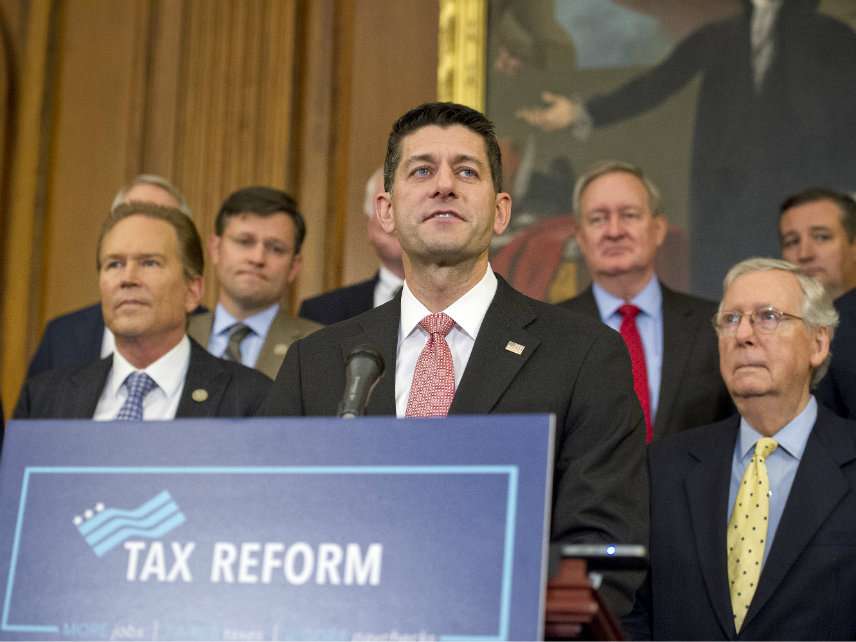House Republicans Just Passed a Major Tax Reform Bill
The process of passing tax reform will only become more difficult from here.
House Republicans passed a major overhaul to the tax code today

. The bill passed 227 to 205 on a party line vote, with a handful of Republicans, mostly from high-tax blue states, joining Democrats in opposition.
The House plan cuts taxes by roughly $1.5 trillion over the next decade, with tax reductions for both businesses and individuals. The plan would slash the corporate tax rate from 35 percent down to 20 percent, and would condense the current seven individual income tax brackets into four while expanding the child tax credit and doubling the standard deduction.
The lower corporate tax rate would be a permanent change. However, a new $300 tax credit dubbed the "family flexibility credit" that is intended to help middle would expire in 2023, leading one analysis to find that, after that year, only 40 percent of Americans would pay lower taxes under the plan—and 22 percent would pay more.
The House legislation also reduces or eliminates many major deductions, including carve outs for medical expenses, cars, moving, tax preparation, and student loan interest. The plan gets rid of the state and local tax deduction for income and sales tax would be eliminated, and caps the deduction for property taxes.
That deduction provides the biggest benefit to residents of high-income, high-tax states that tend to vote Democratic—hence the handful of GOP blue state defectors. Unlike the revised Senate tax plan that was released earlier in the week, it does not repeal Obamacare's individual mandate to purchase health coverage.
Although some Republican representatives grumbled about the plan's treatment of various deductions, the passage of a tax bill in the House was never really in question. Republicans will now move forward with a related bill in the Senate, where passage is far less certain. Senate Republicans plan to pass the legislation with only Republican votes and a simple majority. They hold just 52 seats, which means they can lose just two votes (Vice President Mike Pence would break a tie).
But one Republican, Sen. Ron Johnson (R-Wisc.), has already said he will not vote for the plan. Sen. Bob Corker (R-Tenn.) has said he will oppose any plan that substantially increases the deficit, which potentially puts him in the "no" camp as well. And while the decision to repeal Obamacare's individual mandate helps to offset the budgetary effects of the Senate plan's tax reductions, it also ties the tax bill to health coverage, which, as we saw this summer with the failed health care overhaul, could complicate the vote math too. The possibility of losing a GOP senator in the Alabama special election next month adds a further wrinkle.
Indeed, at this point, the GOP's tax reform effort looks remarkably similar to its health care push. After some initial complications, the health care bill eventually passed in the House, despite some GOP objections. Senate leadership tried to rush a health care bill to vote, but found themselves stymied by a handful of holdouts. The same dynamic could play out again with tax reform.
Republicans are generally more comfortable with tax policy than with health care, and, after the failure of their first major legislative initiative, are feeling an awful lot of pressure from supporters to pass some sort of tax legislation. So I suspect the odds of some sort of tax bill passing are better than the odds of health care were. But the bumpy process so far makes clear it won't be easy. Passage in the House is a significant first step, but the tax bill still has a long way to go.


Show Comments (247)